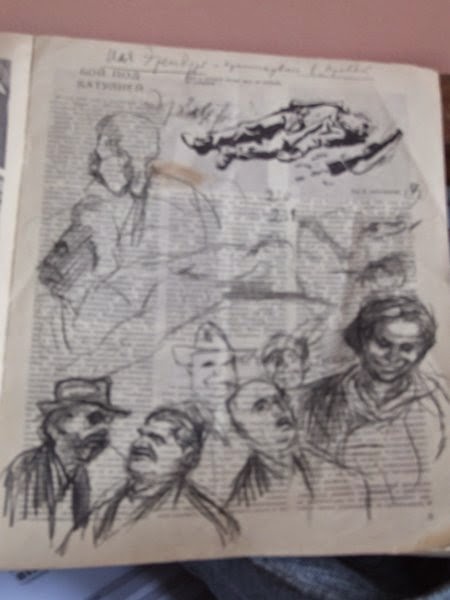Today
I celebrate the 1000th post of the blog I started 5 years ago.
It’s been quite
a journey - 1,300
pages of text and pictures covering those topics which took my fancy – the
hallmark being the exclusion of the noise of current affairs…..and sparked off
by the books and articles I was reading (and sometimes writing).
Initially
it was called “Carpathian Musings” by virtue of the dramatic location of the old
mountain house south of Brasov which I had acquired in 2000 – a decade into my
nomadic wanderings in Central Europe and at the start of what was to become 8
years of nomadic work (on capacity development) in Central Asia.
In
2007 I felt it was time to get back to Central Europe and find out how places
like Bulgaria and Romania were dealing with the challenge of transition. The
Bulgarian work …..which I described in the 2008 paper Learning
from Experience had aroused my interest in websites and E-learning and was
the incentive to set up first a website for the various papers I had written – Publicadminreform - and
then the blog whose title was broadened in 2010 or so….
Earlier
this year, I published two small E-books based on the posts I had done on
Romania and Scotland in the past year - Mapping
Romania and The
Independence Argument.
Now
I have just brought out a 200 page tribute to Bulgarian painters - Exploring
Bulgaria thro its Art – which is a major expansion of the 2010 booklet “Introducing
the Bulgarian Realists – getting to know the Bulgarians through their
paintings”. Sixty names have been added as have some 140 pages of the blogposts
I have written on the subject in the past few years…… Many of these posts were written as I
travelled around Bulgaria in 2011/12 visiting the various municipal galleries
in the regions (and tasting the wines!) - so readers will get an unusual sense
of the country although it does not pretend to be the sort of analysis you can
find in Mapping
Romania.
You’ll
find a statement of intent at the start of each of the 5 volumes of Balkan
and Carpathian Musings available in the E-book section of my new website Mapping the Common Ground.
I
have not sought so far any publicity for this website – which is a fairly
unusual library of material useful for those who are unhappy with the direction
modern civilisation has been taking and who believe in the importance of people
coming together and exploring how best to change things for the better……Libraries,
after all, are places for quiet, calm reflection…….
Update
Just
loved the 15 “ailments” which Pope Francis has apparently identified in the Vatican bureaucracy. He could be speaking
about the leading denizens of any large organisation – most of whom need being
brought down to earth…….They include these six -
1 Feeling immortal, immune or indispensable. “A Curia that doesn’t criticise itself, that doesn’t update itself, that doesn’t seek to improve itself, is a sick body.”
7) Being rivals or boastful. “When one’s appearance, the colour of one’s vestments or honorific titles become the primary objective of life.”
9) Committing the “terrorism of gossip”. “It’s the sickness of cowardly people who, not having the courage to speak directly, talk behind people’s backs.”
10) Glorifying one’s bosses. “It’s the sickness of those who court their superiors, hoping for their benevolence. They are victims of careerism and opportunism, they honour people who aren’t God.”
13) Wanting more. “When the apostle tries to fill an existential emptiness in his heart by accumulating material goods, not because he needs them but because he’ll feel more secure.”
15) Seeking worldly profit and showing off. “It’s the sickness of those who insatiably try to multiply their powers and to do so are capable of calumny, defamation and discrediting others, even in newspapers and magazines, naturally to show themselves as being more capable than others.”



